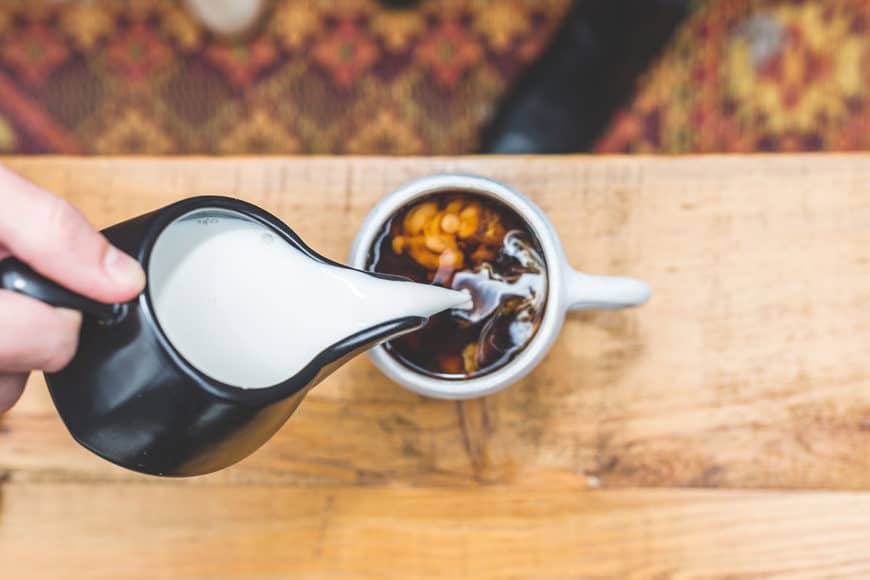
Unless you take your coffee black, you’re likely splashing some milk or non-dairy alternative into your cup to mellow its bite and add a creamy touch. With so many options—whole milk, skim, soy, almond, and more—choosing the right one can feel daunting.
This guide breaks down the most popular dairy and non-dairy milks for coffee, detailing their flavor profiles, nutritional pros and cons, and how they enhance your brew. Whether you prioritize taste, health, or dietary needs, you’ll find the perfect match for your morning coffee.
Why Add Milk to Coffee?
Milk or milk alternatives transform coffee’s bold, sometimes bitter edge into a smoother, more approachable drink. They add creaminess, balance acidity, and can enhance flavors, especially in espresso-based drinks like lattes and cappuccinos.
Non-dairy options cater to vegans, lactose-intolerant folks, or those seeking specific nutritional benefits. Each type brings unique qualities to your cup, from whole milk’s richness to oat milk’s subtle sweetness, making your choice a matter of taste, health goals, and lifestyle.
Whole Milk
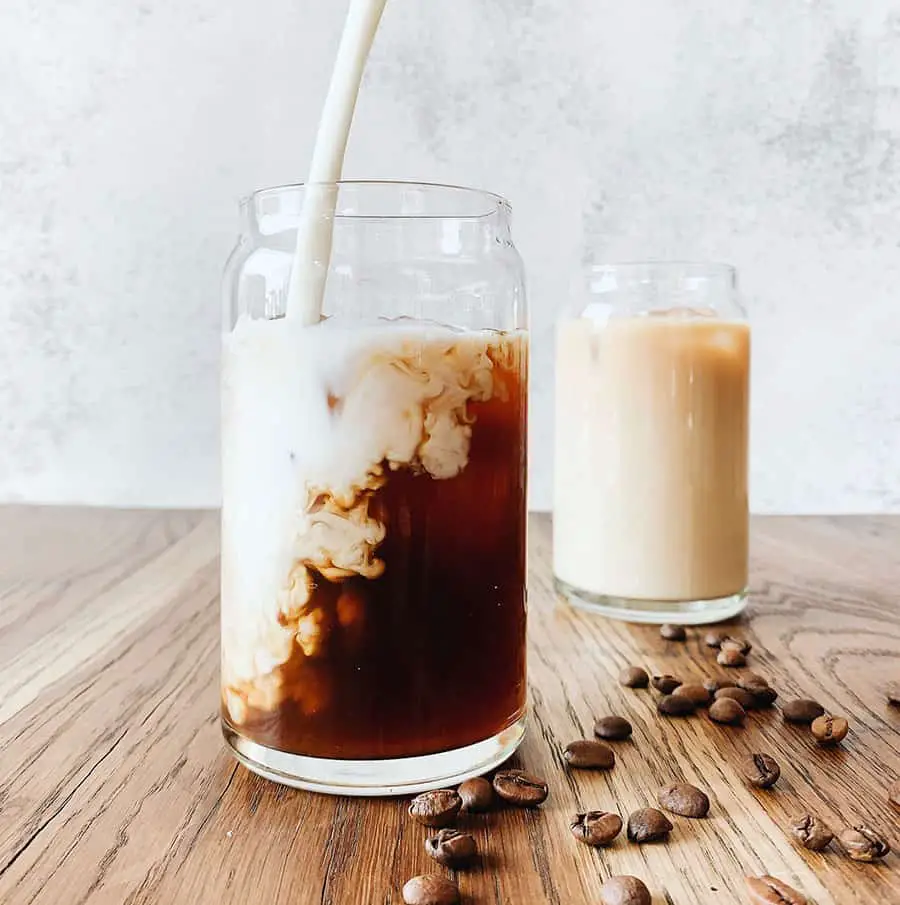
Whole milk is a classic for coffee, delivering a rich, creamy texture that elevates any brew. With about 3.25% fat by weight, it’s not as heavy as many assume—a 240ml (8 oz) glass has 150 calories, 8g protein, and 8g fat. In coffee, you’re using far less (1-2 oz), so the caloric impact is minimal. Your article’s claim that whole milk isn’t linked to obesity or heart disease aligns with recent studies showing moderate dairy fat consumption may even correlate with lower BMI.
Flavor and Use: Whole milk’s full-bodied, slightly sweet taste complements coffee’s bitterness, making it ideal for lattes and cappuccinos where milk is steamed or frothed. Its fat content carries coffee’s flavors, enhancing notes like chocolate or caramel in darker roasts.
Pros:
- Rich, creamy mouthfeel
- Naturally high in vitamins A, D, E, K
- Perfect for espresso-based drinks
Cons:
- Higher fat and calories than other options
- Not suitable for lactose intolerance or vegan diets
Reduced-Fat Milk (2%)
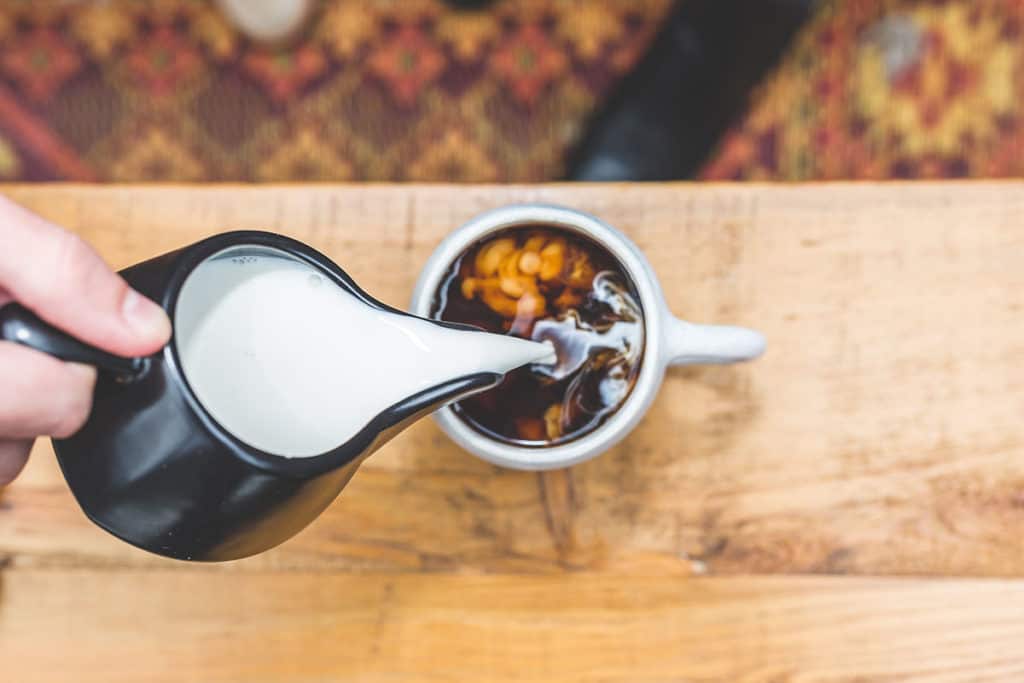
2% milk, or reduced-fat milk, has 2% fat by weight, achieved by skimming cream and adding some back. A 240ml glass contains 120 calories, 8g protein, and 5g fat—30 fewer calories and 3g less fat than whole milk, as you noted. Its taste is close to whole milk but slightly less rich, offering a balance of flavor and lighter nutrition.
Flavor and Use: 2% milk provides a creamy yet lighter texture, great for drip coffee or lattes. It froths well, though not as voluminously as whole milk, and suits those who want whole milk’s taste with fewer calories.
Pros:
- Balances flavor and lower calories
- Widely available, often the default in coffee shops
- Good for steaming and frothing
Cons:
- Less rich than whole milk
- Still unsuitable for lactose-intolerant or vegan diets
Fat-Free Milk (Skim)

Skim milk has all fat removed, yielding 80 calories, 8g protein, and 0g fat per 240ml glass. As you mentioned, its watery, thin texture lacks the creaminess of whole or 2% milk, which some find unappealing. To compensate, manufacturers often add vitamins A and D, as fat-soluble nutrients are lost during skimming.
Flavor and Use: Skim milk dilutes coffee’s intensity without adding richness, making it a low-calorie choice for black coffee or Americanos. It’s less ideal for frothing due to its low fat content, producing thinner foam.
Pros:
- Lowest calories and no fat
- High protein content
- Good for calorie-conscious diets
Cons:
- Watery, less flavorful
- Poor for lattes or cappuccinos
- May contain additives
Soy Milk
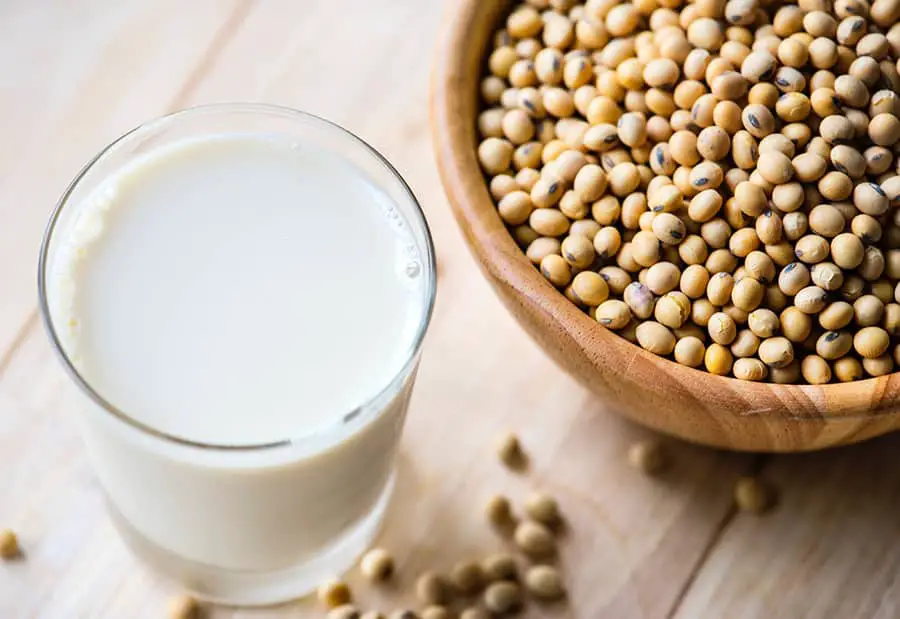
Soy milk, made by soaking and boiling soybeans, is a popular non-dairy option with a creamy texture similar to cow’s milk. Unsweetened soy milk has 64 calories, 7g protein, and 4g fat per 240ml, though your article’s 90-calorie estimate is closer to sweetened versions. It’s naturally high in potassium and contains all essential amino acids, as you highlighted, making it a nutritious choice.
Flavor and Use: Soy milk’s mild, slightly nutty taste pairs well with coffee, and it froths decently for lattes. Sweetened or flavored versions (vanilla, chocolate) add a dessert-like twist but increase sugar content.
Pros:
- High protein, comparable to cow’s milk
- Widely available, vegan-friendly
- Good for frothing and steaming
Cons:
- Possible soy allergens
- Sweetened versions add sugar
- Some notice a slight beany aftertaste
Almond Milk
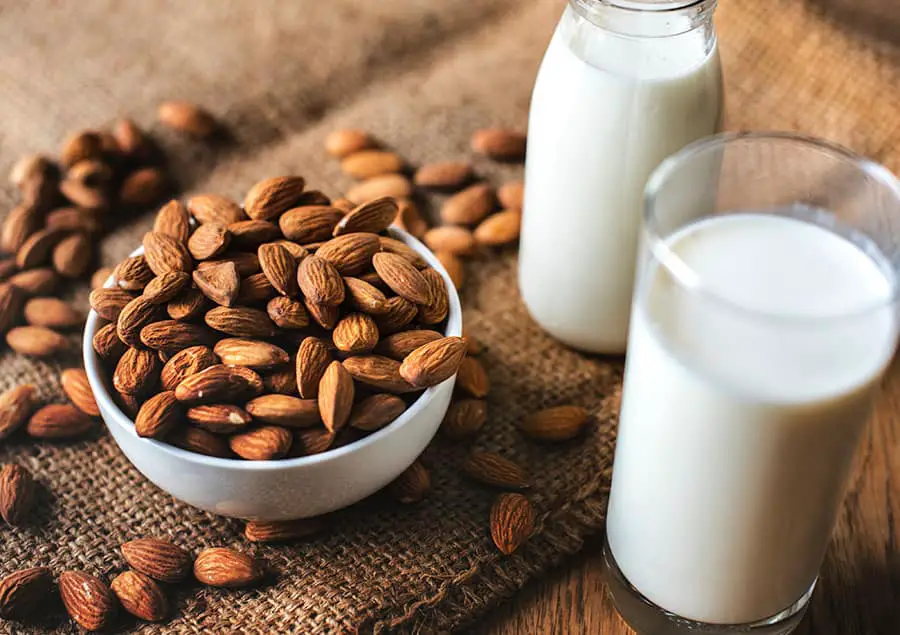
Almond milk, made by blending almonds with water and straining, has surged in popularity, overtaking soy in the U.S. by 2020. Unsweetened almond milk has 64 calories, 1g protein, and 3g fat per 240ml—lower than your article’s 40-calorie estimate but still low-cal. It’s high in fiber, calcium, and vitamin E, great for skin and immunity.
Flavor and Use: Almond milk’s subtle nutty sweetness complements iced coffee and light roasts. It froths moderately but can separate in hot coffee due to lower heat stability. Vanilla or chocolate flavors enhance specialty drinks.
Pros:
- Low calories and fat
- Nutty flavor, great for iced coffee
- High in fiber and vitamin E
Cons:
- Low protein content
- Almond allergens
- May curdle in hot coffee
Oat Milk
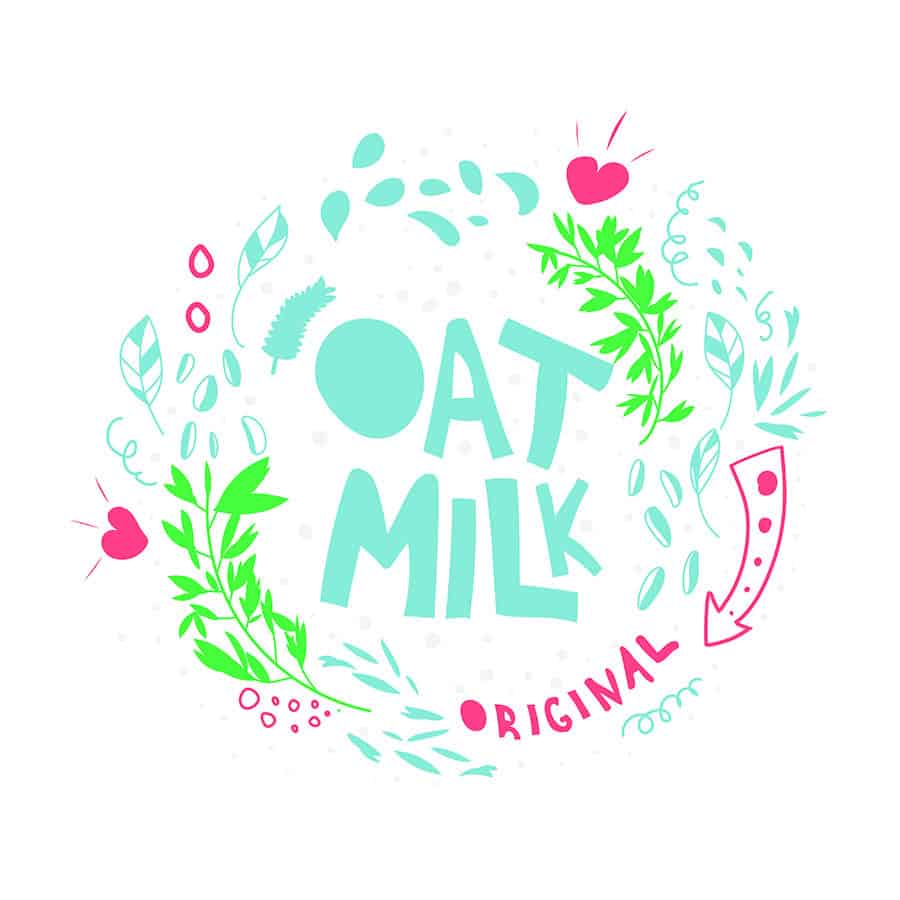
Oat milk, pioneered by brands like Oatly, is made by soaking oats in water, blending, and straining. A 240ml cup has 96 calories, 3g protein, and 5g fat, slightly lower than your article’s 130 calories. It’s high in fiber (2g per serving) and naturally contains calcium and vitamin D, as you mentioned. Check for gluten-free certification if you have celiac disease.
Flavor and Use: Oat milk’s sweet, creamy texture makes it a coffee shop favorite, especially for lattes, as it froths beautifully. Its neutral flavor enhances coffee without overpowering it.
Pros:
- Creamy, froths well
- High fiber, vegan-friendly
- Stable in hot and cold coffee
Cons:
- Moderate protein
- Possible gluten issues
- Some brands add sugar or oils
Coconut Milk
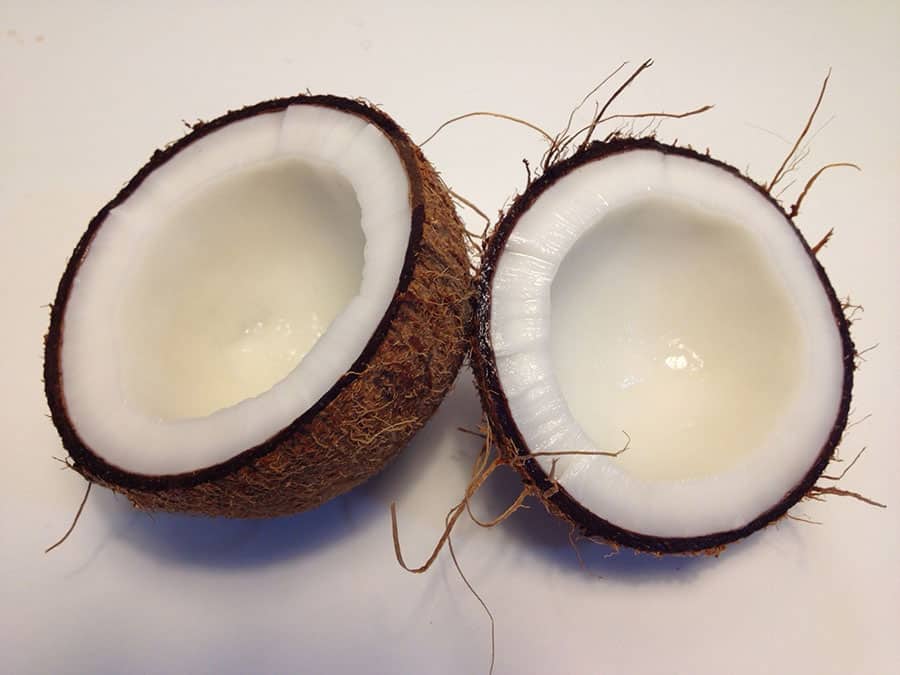
Coconut milk, extracted from grated coconut flesh and diluted with water, is distinct from canned coconut cream. A 240ml cup has 140 calories, 1g protein, and 14g fat—far less than your article’s 552 calories, which likely refers to undiluted coconut cream. It’s rich in healthy saturated fats like lauric acid, supporting immunity.
Flavor and Use: Coconut milk’s sweet, tropical flavor and thick texture shine in iced coffee or lattes, adding a subtle coconut note. It’s less ideal for frothing due to high fat content.
Pros:
- Rich, tropical taste
- Healthy fats, vegan-friendly
- Great for iced coffee
Cons:
- High calories and fat
- Low protein
- Strong flavor may not suit all coffees
Rice Milk
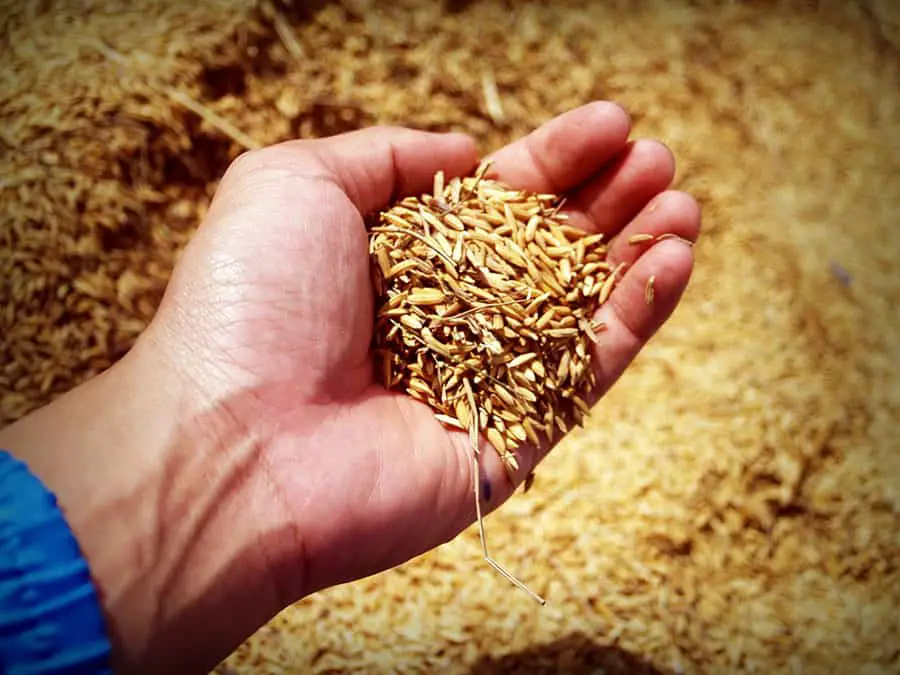
Rice milk, made by boiling milled brown rice with water, is naturally sweet and hypoallergenic. A 240ml cup has 120 calories, 1g fat, and 2g protein, often fortified with vitamins A, D, B12, and calcium, as you noted. Additives like thickeners are common to mimic milk’s texture.
Flavor and Use: Rice milk’s thin, sweet profile works in drip coffee but lacks richness for frothing. It’s a safe choice for those with dairy, soy, or nut allergies.
Pros:
- Hypoallergenic, vegan-friendly
- Naturally sweet
- Low fat
Cons:
- Low nutritional value
- Thin texture, poor frothing
- Often contains additives
Choosing the Right Milk
Your coffee habits and priorities shape your choice:
- Flavor and Richness: Whole milk or oat milk for creamy, full-bodied coffee.
- Low-Calorie: Skim milk or almond milk for minimal calories.
- Non-Dairy: Soy or oat milk for frothing; rice milk for allergies.
- Health Focus: Soy for protein, almond for vitamin E, coconut for healthy fats.
Here’s a nutritional comparison:
| Milk Type | Calories (240ml) | Protein (g) | Fat (g) | Best For |
|---|---|---|---|---|
| Whole Milk | 150 | 8 | 8 | Lattes, cappuccinos, rich flavor |
| 2% Milk | 120 | 8 | 5 | Balanced flavor, lighter coffee |
| Skim Milk | 32 | 3 | 0 | Low-calorie, drip coffee |
| Soy Milk | 64 | 7 | 4 | Frothing, vegan, high protein |
| Almond Milk | 64 | 1 | 3 | Iced coffee, low-calorie, fiber |
| Oat Milk | 96 | 3 | 5 | Lattes, creamy, vegan-friendly |
| Coconut Milk | 140 | 1 | 14 | Iced coffee, tropical flavor |
| Rice Milk | 120 | 2 | 1 | Allergies, light coffee |
Final Thoughts
The best milk for your coffee depends on your taste, dietary needs, and coffee style. Whole milk and oat milk deliver rich flavors for espresso drinks, while skim and almond milk keep things light. Soy and coconut milk cater to non-dairy diets, and rice milk suits allergy sufferers. Experiment with these options to find your ideal cup—your morning brew deserves it.

